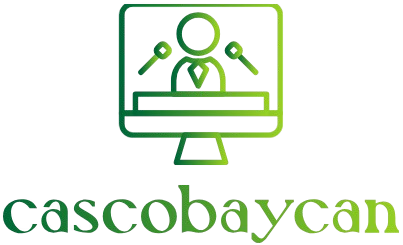Organizing family events can be a rewarding yet challenging task. Whether you’re planning a holiday gathering, a birthday party, or a family reunion, ensuring everything runs smoothly requires careful planning and attention to detail. This article provides practical tips on how to organize family events effectively, making sure that each occasion is memorable and enjoyable for everyone involved.
Planning the Event
Setting Clear Objectives
Why Define Your Objectives
Before diving into the details, it’s crucial to define the objectives of the family event. Understanding the purpose helps guide your planning process and ensures that all elements of the event align with your goals.
How to Set Objectives
Determine the type of event you’re organizing, whether it’s a casual get-together or a formal celebration. Establishing clear objectives, such as celebrating a milestone or strengthening family bonds, provides direction and helps in making decisions throughout the planning process.
Creating a Budget
Importance of Budgeting
Creating a budget is essential for organizing family events effectively. A well-planned budget helps manage expenses and ensures that you stay within your financial limits.
How to Create a Budget
Start by estimating the costs associated with the event, including venue, food, decorations, and entertainment. Allocate funds accordingly and keep track of expenses to avoid overspending. A detailed budget also allows for better prioritization of expenses and ensures that you can enjoy the event without financial stress.

Organizing the Details
Choosing the Right Date and Time
Why Timing Matters
Selecting the right date and time for family events is crucial to ensure maximum attendance and convenience for all guests. Coordination is key to accommodating everyone’s schedules.
How to Choose the Date and Time
Consider checking with family members to find a date that works for the majority. Factor in any potential conflicts, such as other family events or holidays. Once a date is selected, choose a time that suits the type of event and allows for adequate preparation and enjoyment.
Selecting a Venue
Importance of Venue Selection
The venue plays a significant role in the success of family events. Choosing the right location ensures that the event can accommodate all guests comfortably and provides the appropriate atmosphere for the occasion.
How to Select a Venue
Consider the size of your guest list and the type of event when selecting a venue. Whether it’s a family home, a rented hall, or an outdoor space, ensure that it meets your needs and preferences. Additionally, consider accessibility and any necessary amenities to make the event more enjoyable for everyone.
Coordinating the Details
Organizing Activities and Entertainment
Why Plan Activities
Planning engaging activities and entertainment is essential to keep guests entertained and create a memorable experience. Activities should align with the theme and purpose of the event.
How to Organize Activities
Choose activities that cater to different age groups and interests. This could include games, music, or themed activities. Plan the schedule in advance to ensure a smooth flow and make any necessary arrangements for equipment or materials.
Managing Food and Beverages
Importance of Food and Beverages
Food and beverages are central to most family events, making it essential to plan accordingly. Offering a variety of options ensures that all guests are catered to and enhances the overall experience.
How to Manage Food
Decide whether you’ll prepare food yourself, hire a caterer, or organize a potluck-style event. Consider dietary restrictions and preferences when planning the menu. Make sure to arrange for adequate serving ware and ensure that food is served at the appropriate temperature.
Communicating with Guests
Sending Invitations
Why Invitations Matter
Sending invitations helps communicate important details about the event to your guests and ensures that everyone is informed and prepared.
How to Send Invitations
Choose a method for sending invitations that suits the formality of the event, whether it’s digital invitations, physical cards, or a simple phone call. Include essential information such as the date, time, location, and any special instructions or requests.
Providing Updates and Reminders
Importance of Communication
Keeping guests updated and providing reminders ensures that everyone remains informed about any changes or additional details related to the event.
How to Provide Updates
Send reminders as the event approaches to confirm attendance and provide any last-minute information. This could include directions, parking instructions, or changes in the schedule.
Conclusion
Effectively organizing family events involves careful planning, budgeting, and coordination. By setting clear objectives, managing details, and communicating effectively with guests, you can ensure that your family event runs smoothly and is enjoyable for everyone. These steps help create memorable experiences and strengthen family bonds, making each gathering a cherished occasion.











